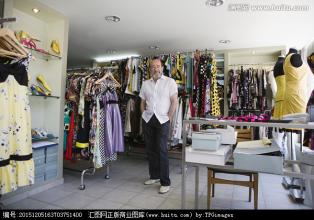China’s bike-sharing industry has embraced an explosive growth since last year. Data showed that by the end of last year, millions of bikes offered by over 20 bike-sharing companies have expanded their service to nearly 19 million users.
The bike-sharing service enables users to find, unlock and pay to rent the bicycles through a smart phone app. Mobike and Ofo are among the two largest of a growing crop of private bike-sharing operators.
Ofo, the company behind the yellow two-wheelers, announced on 1st Marchthat it has raised 3.1 billion yuan($450 million) in a fresh round of funding. It not only represents the largest single deal in terms of fund raised by a bike-sharing firm, but also swells the firm to the industry’s richest unicorn, a start-up company valued at over 1 billion dollars.
Shared bikes are lined up outside a subway entrance in CBD in Beijing.
Public bike is not a fresh thing. Many Chinese cities have launched public bikes previously to meet the citizens’demands for the “last mile” of public transportation, but congested public space and complicated procedures restrained the pace of such efforts.
Unlike the services provided by local governments, users of the newly emerging shared bikes like Orange-hued Mobike can find and pay for bicycles via a smart phone app and then leave them wherever they want. The location of the bike will be recorded by the data platforms, so that the next users can find one easily.
The economical and convenient service also responds to China’s call for green, energy-saving transportation, attracting a host of fans due to its convenience and low price.
These bikes, a combination of sharing-economy, hightechnology and market demands, also provide the outside world a glimpse into China’s huge potential in sharing economy.
PwC’s projections show that five key sharing sectors―travel, car sharing, finance, staffing, and music and video streaming―have the potential to increase global revenues to around 335 billion dollars by 2025, over 20 times higher than the number in 2016.
The latest report released by McKinsey & Company on China’s sharing economy revealed that shared transportation is gaining wide popularity in the Chinese market, while office space and technology sharing is rising.
So far, China’s sharing economy is applied in transportation, office space, skills and finance, while segment fields including car-hailing, bike-sharing, car-sharing and apartment-renting are growing in a faster pace. Bicycle-sharing boom reinvigorates manufacturers
China’s bicycle manufacturers are poised for a resurgence thanks to the booming bike-sharing industry.
The once dominant two-wheelers have given way to cars in recent years due to China’s rising middle class. However, new bike-sharing services allow commuters to escape traffic gridlock and public transit for as little as 1 yuan (about 0.15 U.S. dollar) per hour. Users can unlock bicycles with a mobile app and drop them off anywhere for the next customer.
In the past couple of years, 29 brands have sprung up, placing more than 3 million bicycles on streets around the country and wrestling for domestic market share. Demand in China is estimated at around 20 million bikes, according to Liu Xuequan, who heads the association of the bike industry in Tianjin, the country’s largest bicycle manufacturing base.
"The new business has given a push to a group of traditional bike manufacturers," Liu said.

A report from Beijing-based BigData Research showed the number of shared bicycle users exceeded 18 million as of the end of 2016 and is expected to approach 50 million by the end of this year.
"When there were no bike-sharing services, we had peak and slack seasons in production. But now, we are busy all year round," said Zhang Jinying, an executive with the Tianjinbased manufacturer Flying Pigeon, a supplier for bike-sharing service Ofo.
Four Flying Pigeon factories are scheduled to produce 900,000 bikes in March, with half of the orders from bikesharing start-ups, Zhang said, adding that the manufacturer is working to expand production capacity and hire more workers due to ever-increasing orders.
The production standard for shared bikes is higher than for ordinary ones, since shared bikes require better endurance of some parts,
A bicycle’s service life is around two years if five users ride it each day. That may lead to 10 million bikes that need repairs per year, creating a new market for manufacturers to compete for, according to Liu Xuequan.
Fleets of brightly-colored shared bikes are becoming ubiquitous in big cities like Beijing and Shanghai.
They have also secured backing from the government. China’s Minister of Transport Li Xiaopeng said in late February that bike sharing is innovative and should be encouraged and supported.
However, problems have arisen when users park bikes haphazardly, tarnishing the city’s image and blocking traffic. Management Problem
There have been a number of news reports of angry business owners or security guards who have damaged the bikes or stacked them up because the jumbled vehicles had affected their work.
In late November, urban management officers in Chengdu City, capital of southwest China’s Sichuan Province, confiscated nearly 200 shared bikes because they violated the city’s parking regulations. A similar seizure was reported in Hangzhou City, capital of east China’s Zhejiang Province, in December.
Some bikes have been damaged by drivers of motorbike taxis and electric tricycles because bike-sharing has taken away their passengers. Vandals and ill-behaved bike users have also caused trouble.
A set of photos that have gone viral have exposed such acts: abandoning bikes in a river, inserting needles into the saddle, and destroying QR codes in order to steal bikes.
In one photo, a yellow bike was reduced to its basic frame after being stripped of most of its parts, with a caption saying"Well, no problem, it is for ’sharing.’"
Such vandalism has prompted police intervention. On Feb. 28, Chengdu police detained a man who ran a traditional bike rental business for burning and burying more than 10 shared bikes from various brands two days earlier.
Liu Xuequan disclosed that manufacturers are working on technical upgrades to prevent bikes from being dismantled or stolen.
Ofo founder and CEO Dai Wei said bike misuse has not created a notable loss for the company.
"During the past three months, ’inactive bikes,’ which means they might have been damaged or taken home, only accounted for 1 percent of the total," he said, while calling all users to treat the vehicles nicely.
Ofo has hired workers to ensure the bikes are returned in good condition and parked properly. Rival Mobike has enlisted its users to help track down lost bikes and maintain orderly parking. Some local governments have rolled out rules to regulate parking.
Minister Li Xiaopeng said it requires joint efforts from the government, service providers and customers to maintain smooth rides for shared bikes.
 爱华网
爱华网



